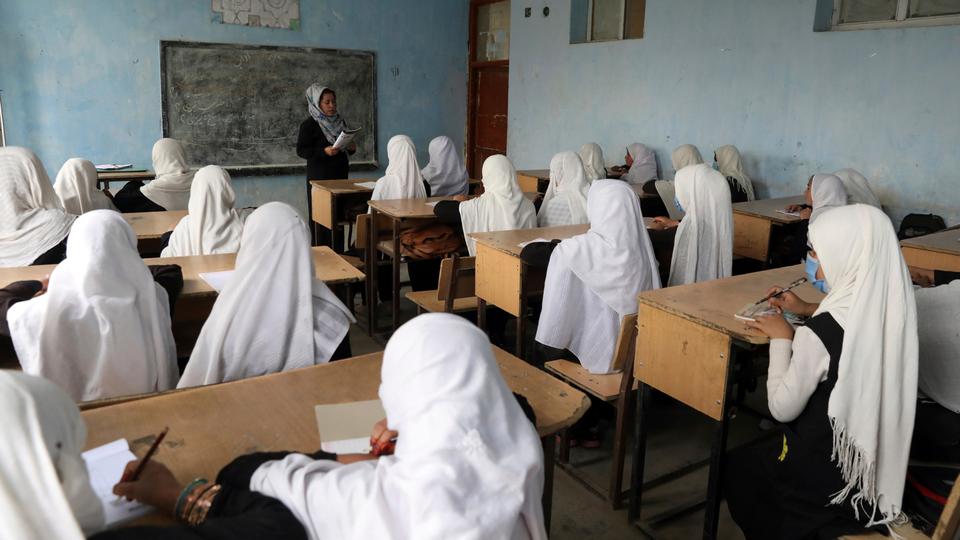A small group of Afghan high school students has held a protest in the western city of Herat to denounce Taliban moves preventing girls from attending school.
Thirteen schoolgirls, 15 to 18 years of age, gathered in a residential area on Herat’s outskirts — a neighbourhood where the Taliban have no presence — so as not to draw their attention. A few local journalists invited by the girls covered the rally.
The protesters held banners demanding to be able to return to school, saying that barring girls from education would leave an entire future nation uneducated.
READ MORE: Classes resume in Afghanistan, but girls excluded
“We ask them (Taliban) to reopen our schools as soon as possible,” said one protester, Nargis Jamshid, 17. She added that not going to school feels as if “we are moving backward.”
“We demand that all girls must return to their schools and all the women should be allowed to get back to their work,” said Sharaara Sarwari, 18.
International community has made women’s rights a central condition to any sort of recognition of the Taliban movement, which needs foreign funding to run the crippled economy.
After taking power in Afghanistan last month, the Taliban initially said girls would be given equal access to education, albeit in gender-segregated settings, and promised inclusivity but have since imposed several restrictions on women.
On Sunday, female employees in the Kabul city government were told to stay home, with work only allowed for those who cannot be replaced by men.
On Friday, the Taliban-run Education Ministry ordered boys from grades six to 12 back to school, starting on Saturday, along with male teachers — but made no mention of girls in those grades returning to school.
In their previous rule in the 1990s, the Taliban had barred girls and women from schools, jobs and public life.
Afghan women outraged
Afghan women who have lost jobs at a time when the entire country is facing an economic crisis are particularly critical of the Taliban.
“I may as well be dead,” said one woman, who was sacked from her senior role at the Foreign Ministry.
“I was in charge of a whole department and there were many women working with me … now we have all lost our jobs,” she said, insisting she not be identified for fear of reprisals.
The acting mayor of the capital Kabul has said any municipal jobs currently held by women would be filled by men.
READ MORE: Taliban effectively bans girls from schools, scraps women’s ministry
While the country’s new rulers have not issued a formal policy outright banning women from working, directives by individual officials have amounted to their exclusion from the workplace.
The all-male government also appeared to shut down the former administration’s Ministry of Women’s Affairs and replaced it with one that earned notoriety during their first stint in power for enforcing religious doctrine.
Many Afghan women fear they will never find meaningful employment.










Discussion about this post